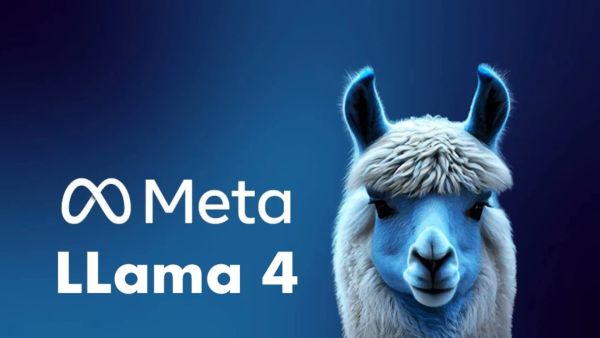
Meta has surprised the tech world with a weekend release of its newest AI models in the Llama family. The company unveiled four new models—Scout, Maverick, and the still-training Behemoth—on Saturday, signaling an aggressive push to compete with industry frontrunners like OpenAI and Google.
According to reports, Meta accelerated Llama development after open models from Chinese AI lab DeepSeek began performing as well as or better than Meta’s previous flagship models. This competitive pressure apparently led Meta to establish war rooms dedicated to understanding how DeepSeek managed to lower the cost of running and deploying models like R1 and V3.
The new Llama 4 collection represents Meta’s first foray into using a mixture of experts (MoE) architecture. This approach breaks down data processing into subtasks handled by specialized “expert” models, creating more computational efficiency during both training and query response.
Scout and Maverick are already available on Llama.com and through Meta’s partners, including AI development platform Hugging Face. Meta AI, the company’s AI assistant across WhatsApp, Messenger, and Instagram, has been updated to use Llama 4 in 40 countries, though multimodal features are currently limited to English-language users in the United States.
Each model in the Llama 4 collection serves different purposes:
Maverick focuses on general assistant and chat functions like creative writing. With 400 billion total parameters but only 17 billion active parameters across 128 “experts,” Meta claims it outperforms OpenAI’s GPT-4o and Google’s Gemini 2.0 on certain benchmarks including coding, reasoning, multilingual support, long-context understanding, and image processing. However, it doesn’t yet match more advanced models like Google’s Gemini 2.5 Pro, Anthropic’s Claude 3.7 Sonnet, or OpenAI’s GPT-4.5.
Scout specializes in document summarization and reasoning over large codebases. Its standout feature is an enormous context window of 10 million tokens, allowing it to process images and millions of words at once. This makes Scout particularly useful for working with extremely lengthy documents.
The hardware requirements differ significantly between the two available models. Scout can run on a single Nvidia H100 GPU, while Maverick requires a more powerful Nvidia H100 DGX system or equivalent.
Behemothstill in development, promises to be Meta’s most powerful AI yet. With 288 billion active parameters, 16 experts, and nearly two trillion total parameters, early benchmarks suggest it will outperform GPT-4.5, Claude 3.7 Sonnet, and Gemini 2.0 Pro on evaluations measuring STEM capabilities like math problem solving. It will also require substantially more computing power than its siblings.
In an interesting development, Meta has tuned all Llama 4 models to be less likely to refuse answering “contentious” questions. The company claims these models will now respond to political and social topics that previous Llama versions would have avoided. According to Meta, Llama 4 is “dramatically more balanced” in determining which prompts it will or won’t engage with.
“You can count on (Llama 4) to provide helpful, factual responses without judgment,” a Meta spokesperson said. “We’re continuing to make Llama more responsive so that it answers more questions, can respond to a variety of different viewpoints, and doesn’t favor some views over others.”
These adjustments come amid accusations from some White House allies that AI chatbots are politically biased. Several of President Donald Trump’s close associates, including Elon Musk and crypto and AI “czar” David Sacks, have claimed that popular AI chatbots censor conservative perspectives.
The Llama 4 license includes notable restrictions. Users and companies based in the EU are prohibited from using or distributing the models, likely due to the region’s AI and data privacy laws that Meta has previously criticized as burdensome. Additionally, companies with more than 700 million monthly active users must request a special license from Meta, which the company can approve or deny at its discretion.
Meta describes these Llama 4 models as “the beginning of a new era for the Llama ecosystem,” suggesting we can expect continued development and expansion of the collection in the future. As AI competition intensifies among tech giants, Meta’s weekend release demonstrates the company’s determination to remain a significant player in the rapidly evolving AI landscape.